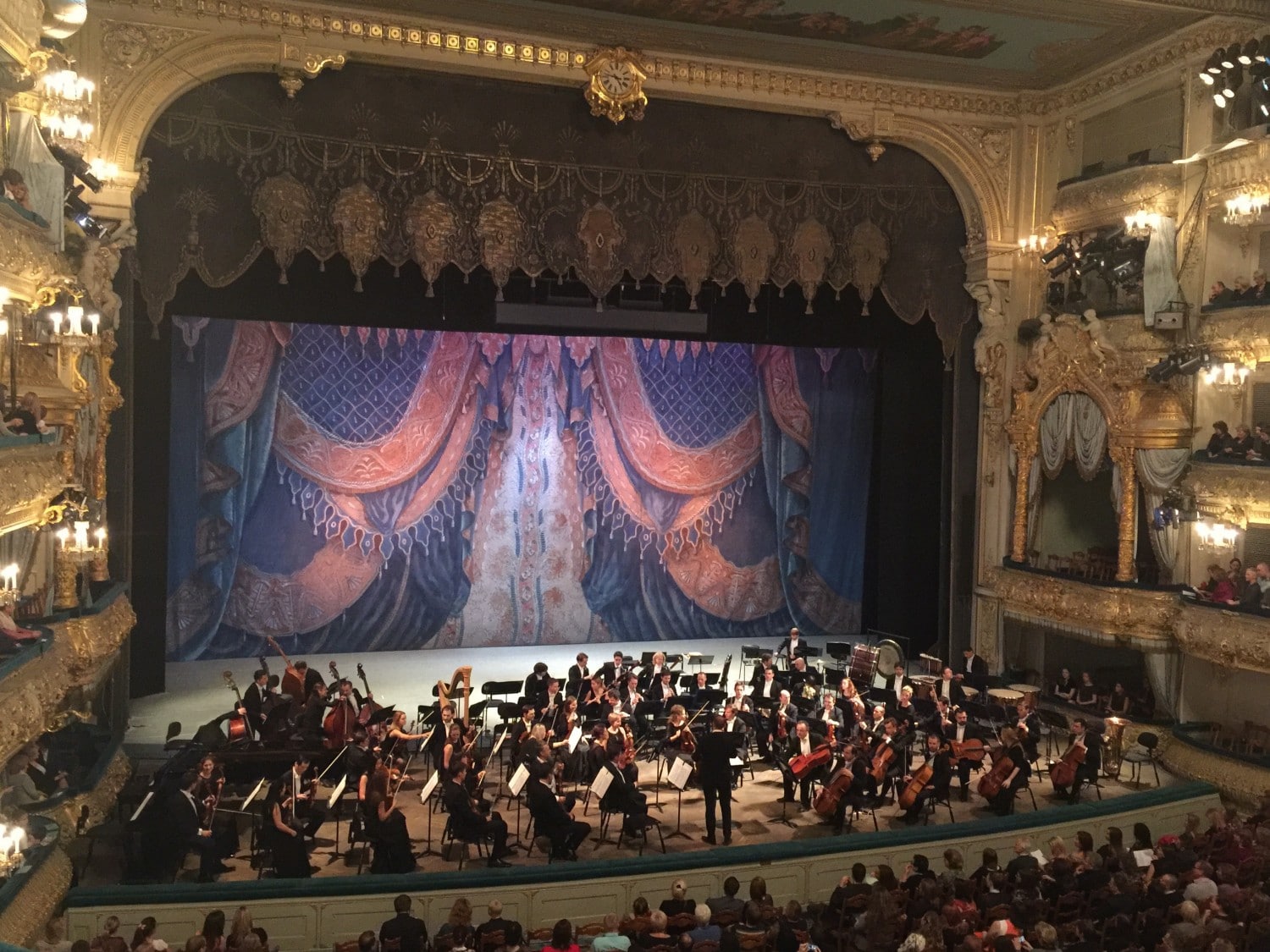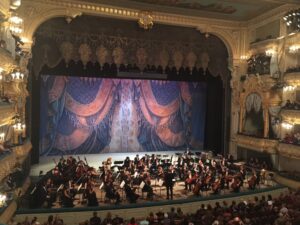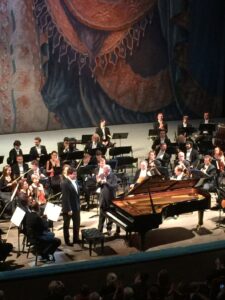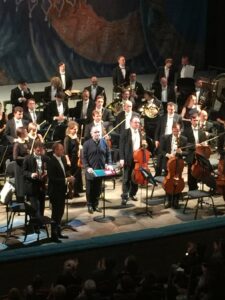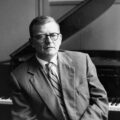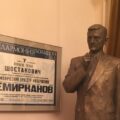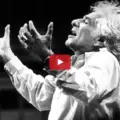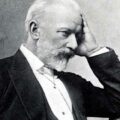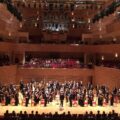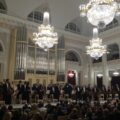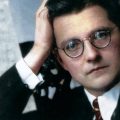Sergei Prokofiev (1891-1953) was one the greatest Russian composers who lived during the Soviet Era. Prokofiev composed for many genres (symphonies, operas, ballets) and he composed music for movies, including Sergei Eisenstein’s films Alexander Nevsky and Ivan the Terrible. Being a huge fan of Valery Gergiev as a conductor, a musician, and as a music historian, I decided to follow him on several social media sites. I was excited when he added a symphonic concert on November 7 with an entire program dedicated to the music of Prokofiev. This was my second time watching Gergiev conduct a symphonic orchestra in St. Petersburg, however this is was my first orchestra concert at the historic Mariinsky Theater. This concert also featured the pianist Denis Matsuev as a soloist in Prokofiev’s Piano Concerto No. 2 in G minor.
Denis Matsuev was born in Irkutsk in 1975 and both of his parents are musicians. His father because his first piano teacher. In 1991, he moved to Moscow to continue his musical education at the Central Music School at the Moscow Conservatory. In 1994, Denis Matsuev took part in his first international piano competition in Johannesburg, South Africa where he won the Grand Prix. In 1998, he won the 11th International Tchaikovsky Competition at the age of 23. After his victory at the International Tchaikovsky Competition, he has performed all around the world with such famous orchestras as the New York Philharmonic, the Chicago Symphony Orchestra, the Berlin Philharmonic Orchestra, and Leipzig’s Gewandhausorchestra. Denis Matsuev has directed the Stars on Baikal festival and is the Artistic Director of the Sergei Rachmaninov Foundation. He also studies jazz piano and he became the first classical musician to give a jazz concert at the Great Hall of the Moscow Conservatory. Denis Matsuev is a recipient of the State Prize of Russia and the Dmitri Shostakovich Prize. He was awarded the title of People Artist of Russia in 2011.
The works of the Prokofiev that were feature during this concert are his Symphony No. 1 in D major, “Classical”, extracts from the ballet Romeo and Juliet, and his Piano Concerto No.2 in G minor. I have seen Prokofiev’s first symphony performed several times and his Romeo and Juliet is one of my favorite ballets so the only new musical experience was his second piano concerto. Sergei Prokofiev began composing his first symphony in 1916 and finished the work on September 10, 1917. The symphony premiered on April 21, 1918 with the composer as the conductor in Petrograd. The symphony was given the name Classical by Prokofiev because this symphony was influenced by the symphonic works of Franz Joseph Haydn, who composed during the Classical Period in Western Music history. This symphony would help usher in the new music movement known as neo-classicism, which used the modern musical techniques of the time alongside the simplistic orchestration common in symphonies from the Classical Period.
Romeo and Juliet is one of the most popular ballets of the 20th century. This ballet is performed in ballet companies throughout the world. The idea to compose music for the ballet Romeo and Juliet after the Shakespearean play was given to Prokofiev by Adrian Piotrovsky. Piotrovsky along with Sergei Radlov wrote the synopsis for the ballet. Prokofiev began composing the music for the ballet in 1935 and was finished with the work in 1936. Originally, this version was intended to have a happy ending but was changed to the original tragic ending after it provoked controversy among Soviet cultural critics. The ballet premiered on December 30, 1938 at the Mahen Theater on Brno, Czechoslovakia (now the Czech Republic). The first Russian premiere occurred at the Kirov Theater (now Mariinsky) in Leningrad on January 11, 1940. This performance featured the revised version of the ballet, which is the version known today. One of the reasons for the delay of the performance of this ballet was due to the article in Pravda, which was printed in 1936 after Stalin attended a performance of Shostakovich’s opera Lady Macbeth of the Mtsensk District. The article denounced any music or art that did not follow the ideological goals of the Communist Party at that time.
Prokofiev’s Piano Concerto No. 2 in G minor was one of the composer’s favorite works. He began composing the concerto in 1912 and completed the piece in 1913. He dedicated this work to one of his friends at the St. Petersburg Conservatory who committed suicide in April 1913. The concerto premiered on August 23, 1913 at Pavlovsk with the composer as soloist. The original score was destroyed following the Russian Revolution. Prokofiev reconstructed and revised the concerto in 1923. The new version of this piece premiered on May 8, 1924 in Paris with Sergei Koussevitzky as conductor. This concerto is one of the most technically formidable piano concertos in the standard repertoire. Denis Matsuev played with such ease and mastery of the piano that one could not notice the difficulty of the piece.
During my time in St. Petersburg, I have attended two symphonic concerts that featured pianist of the International Tchaikovsky Competition. I have a deep love for the piano and although I cannot the play the instrument, I love watching musicians perform on the piano. It is also wonderful to see the high standard of piano playing that is associated with the International Tchaikovsky Competition. This was also the second concert that I attended in St. Petersburg that featured the works of a Russian composer. I really admire how Russian compositions are presented to the public alongside the great symphonic works of the West.
The Mariinsky Orchestra
Denis Matsuev (piano)
Valery Gergiev (conductor)
Mariinsky.ru
Matsuev.com


